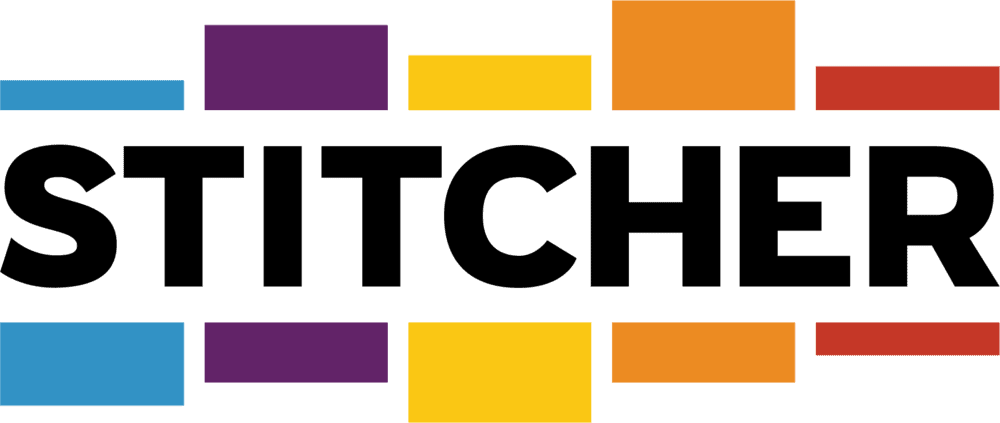Newsletter - April 2019
Talking BS
It is always fun talking to people who are interested in Behavioral Science. We learn and grow from those interactions. Recently we’ve had the opportunity to talk to a variety of people from across different areas – with a big focus on research.
Research is great. Research is better if we can find ways to positively apply that research to our lives and work. We need to understand how to take academic insight, translate it into real-world insight.
Too often, we don’t do this.
We don’t make the connections.
That is often because the connections aren’t always easy to see. Sometimes it is just easier to be awed by the research and forget about the application. Sometimes we just don’t have the time to think about this deeply enough.
That is where talking to people interested in Behavioral Science comes in. Those conversations often lead, at least in our opinion, to insights into how we can apply these research findings into the real world. Those small conversations – over drinks (coffee or beer) lead to cross-pollination and thinking in new ways.
We think differently when we talk. We see different connections. We hear new possibilities.
These conversations spur us to take our thoughts on research and how do we apply that research to our lives.
So, get out there and talk some BS!
Kurt & Tim
Kurt’s Reading Recommendation
Anyone who has interacted with me in the past few years probably knows that I’ve gone a bit crazy over the concept of behavioral priming – from my socks (Einstein themed socks for when I need to be smart, shark-themed socks for when I need to be aggressive), to thinking about how business frames communication, to how we structure our environment to influence behavior. John Bargh, PhD is one of the early leaders in this movement, having conducted some of the most iconic research studies in the field. His book, Before You Know It: The Unconscious Reasons We Do What We Do is a great review of the rationale behind this concept. While Bargh has had some recent controversy regarding the replication of some of his most famous studies, this work is a great exploration into how priming works and the evolutionary reasons that they happen.
Tim’s Reading Recommendation
Tali Sharot’s The Influential Mind has been my reading companion of late. Tali is a professor of cognitive neuroscience in the Department of Experimental Psychology at University College London. She is known for her research on the neural basis of emotion, decision making and optimism and The Influential Mind is right in her wheelhouse. It’s a short read and full of great insights including this: “Some scholars ascertain that the human brain evolved the ability to reason not in order to uncover the truth but to enable us to persuade others that we are right.”
Kurt’s Music
I have fallen in love with the Minnesota / Swedish duo Flora Cash. Their hit “You’re Somebody Else” is a great song that explores how we humans change – but we often don’t show that change “on the surface.” This married couple met online over music and their romantic connection blossomed as they started writing together. Check out their website https://www.floracash.com/ and they are coming to Minneapolis at the end of the month (I’m going!)
Tim’s Music
Kurt has recently been pimping me about only listening to music recorded “before 1978,” as he says. He’s mostly accurate (82% or so) with his statement and I defend it by saying there is more music in the world created before 1978 than after (it’s just statistics!). Rather than all of history, let’s just carve out the 20th Century to separate the best from the rest. Among the many artists in the 1900’s, Skip James was never achieved fortune or fame. Born in 1902, he was a humble, religious son of a reformed bootlegger who taught himself guitar and piano and sang with a veracity that came from experience. I recommend you check out his composition “Hard Time Killing Floor” and get a glimpse into one of the real roots of rock ‘n roll. In his licks, you can hear how he inspired the Allman Brother’s “Midnight Rider” Creedence Clearwater Revival’s “Susie Q” and The Buffalo Springfield’s “Bluebird.”
Podcasts
Available at podbean, iTunes, Spotify and just about anywhere you catch your podcasts, we have several new podcasts (please subscribe to the podcast to ensure you don’t miss any of them) for you to check out:
Francesca Gino: Curiosity and Rebellion. Dr. Gino is a Harvard Business School professor that we were particularly excited to have as a guest. Her recent work, Rebel Talent, shares a body of research findings highlighting why the most successful people break the rules, and how rebellion brings joy and meaning into our lives. Francesca embodies vital and passionate desires to live la dolce vita (“the sweet life” in her native Italian) and even got Tim singing on this episode.
Amit Sood: The Ultimate Happiness Doctor. Looking for a simple 5-step plan to be happier? Amit Sood has one. Amit is an author and physician at the Mayo Clinic, where he specializes in pediatrics, internal medicine and oncology. He also maintains certificates in acupressure, yoga and reiki. His books include The Guide to Stress-Free Living and Handbook for Happiness. He’s a remarkably well-rounded and humble healthcare practitioner as well as a highly productive author. His passion and insights are sure to delight.
Jeanie Whinghter and Afra Ahmad: Balance vs. Harmony. These two women are researchers, teachers, wives, mothers and truly fascinating people. They are planning to unveil an interactive workshop at SIOP – the Society for Industrial and Organizational Psychology – in April 2019 to illuminate the challenges of trying to “have it all.” They turn the lens away from work-life “balance” and toward work-life “harmony.”
Michael Kaplan: Seeking Naysayers. Michael Kaplan is a private equity and angel investor who was part owner and president of the wildly successful carpet cleaning franchise Zerorez. (Note that it’s spelled the same backward as it is forward. A classic palindrome!) He is now associated with Red Hook Investments and is actively finding new ways to help small service companies grow. Check out Michael’s comments if you’re interested in hearing how investors take an active role in managing the firms they engage with.
In the second of Kurt and Tim’s series on Robert Cialdini’s 6 Principles of Persuasion, we Groove on Reciprocity. Reciprocity is when we feel obliged to give back to people who have given to us. The operative word is given, to differentiate the experience from a contractual exchange like a loan or a quid pro quo. Reciprocity shows up not only in what we do but also how we do it. This very brief podcast is for those interested in deepening their understanding of Cialdini’s great work.
Behavioral Science Principles for April
| Availability heuristic
|
The tendency to overestimate the likelihood of events with greater “availability” in memory, which can be influenced by how recent the memories are or how unusual or emotionally charged they may be. |
| Extrinsic incentives bias | An exception to the fundamental attribution error, when people view others as having (situational) extrinsic motivations and (dispositional) intrinsic motivations for oneself. |
| Context effect | That cognition and memory are dependent on context, such that out-of-context memories are more difficult to retrieve than in-context memories (e.g., recall time and accuracy for a work-related memory will be lower at home, and vice versa). |
GROOVELETTER ARCHIVES
- August 17, 2020 August 2020
- July 6, 2020 July 2020
- June 6, 2020 June 2020
- April 6, 2020 April 2020
- March 6, 2020 March 2020
- April 1, 2019 April 2019
- December 22, 2018 December 2018
- November 22, 2018 November 2018
- October 22, 2018 October 2018
- August 22, 2018 August 2018
- July 22, 2018 July 2018
- June 22, 2018 June 2018
- May 22, 2018 May 2018











